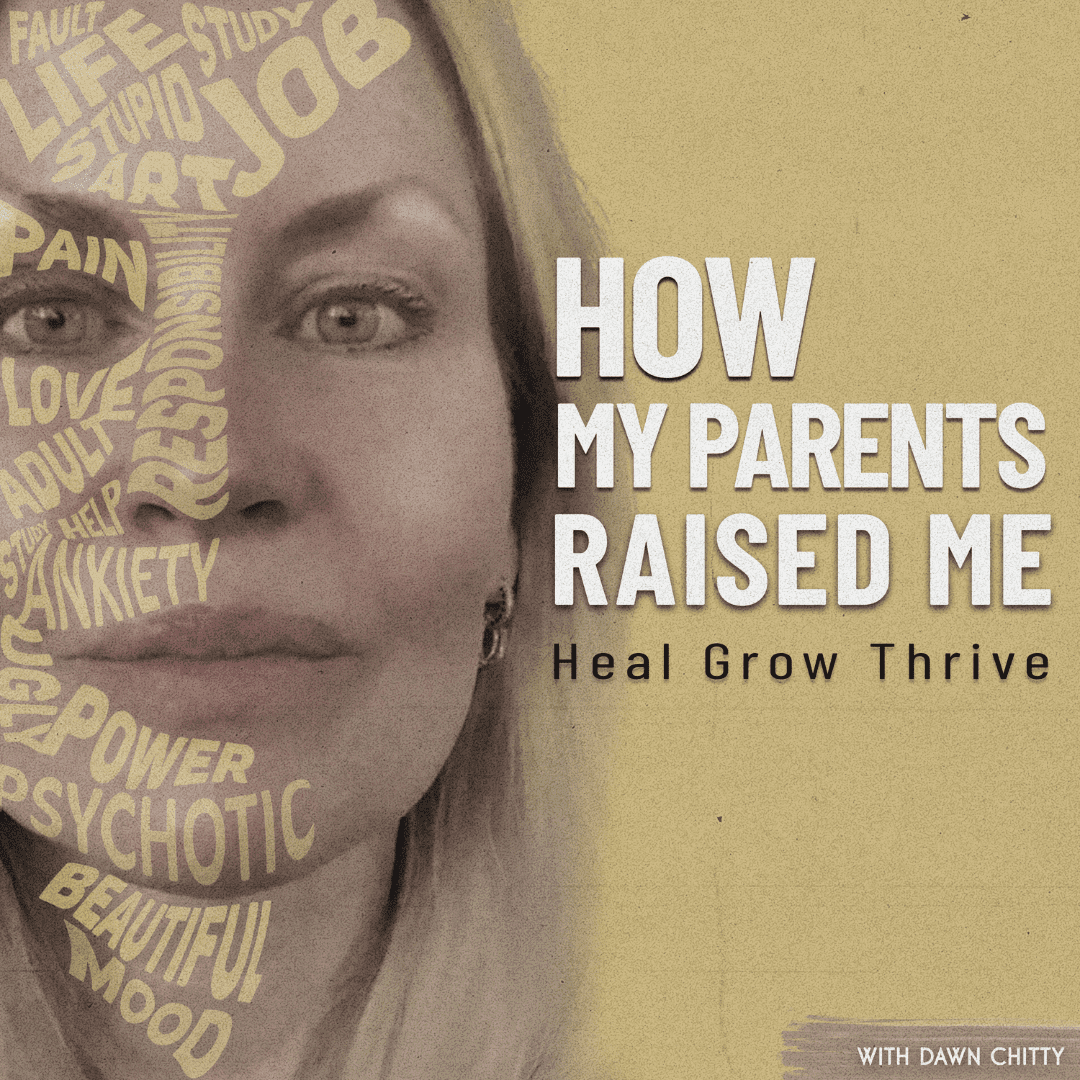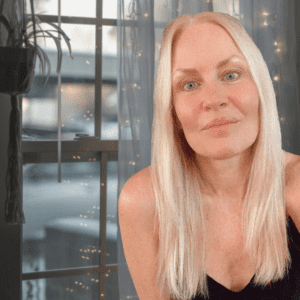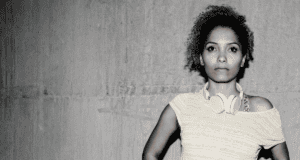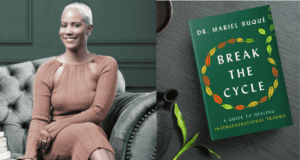What Does Complex Trauma Feel Like? I spoke with Sara Aird, a Trauma Recovery Mentor, who shares her complex trauma recovery journey. Sarah has lived experience of what complex PTSD feels like. Here is everything she wants you to know.
Complex Trauma The Facts
1. I didn’t get the memo for life
For a long time, I didn’t have many memories of my childhood. My memories started around third grade. Everything before that was very fuzzy or incomplete, and even those memories don’t feel real. They feel like pictures or a movie.
I thought nobody remembered their childhood. I didn’t understand it as a cue that something might have happened in my past.
I started to struggle so much as an adult. As I moved towards the goals and values I thought were important, I realised I hadn’t got the memo for life. I missed the instructions. And I felt really, really lost because those larger missing pieces were the abuse that had occurred.
I see myself as the investigator of my own life, where I’ve had to piece together my timeline. I have a better picture of it now, but it’s still fuzzy and incomplete. I do know that I experienced varying levels of different kinds of abuse within dysfunctional family patterns.

2. When Trauma Comes To The Surface
There was this big moment where I got cracked open and I started to realize I really wasn’t doing okay. It was right after I was married. I’m with my new partner and I want to be close and build intimacy and connection and authenticity. Intellectually, I think I can do that. And yet emotionally and in my body, I can’t. And I think coming into that relationship into that vulnerability, opened up a lot of these past traumas to come to the surface.
At the time though I had no context for those triggers and so it felt like I was losing my mind. I went from mostly coping, meaning the defense mechanisms I’ve picked up are working okay, to at some point, being unable to function very well.
And I have this partner in front of me and we want to build a life together. And the only thing I really do know is that I have to get some help. I don’t know what that looks like, but it’s definitely getting in the way of creating the life I want with my partner.
I Was In My Early Twenties, A Newly Married Student Going To College. I Don’t Really Have Any Context For What’s Presenting Itself, Which Is A Lot Of Trauma, A Lot Of Triggers, Tons Of Dysregulation, Suicidal Ideation. I Am In A Really Dark Place. I’ve Never Gone To Therapy Before And It Takes Me Almost Eight To Nine Years To Finally Find A Person Who’s Sitting Across From Me Who Can Start To Give Me Explanations About What I’m Experiencing That Make Any Sense. I’m Finally Sitting Across From A Therapist Who Is Using The Words, Complex Trauma.
PTSD (Post Traumatic Stress Disorder) is a concept people are more familiar with than Complex Trauma, which is the idea that a person experiences an event that’s traumatic for their nervous system. It pushes them beyond their ability to cope, in that moment. Essentially, they go through a trauma.
And then later they might experience triggers, hypervigilance and avoidance, around that. There’s an accumulation of experiences over a period of time. And those experiences are often relational, meaning the experiences are with the people who are significant to us in our life, with people we love and who are supposed to take care of us.
Symptoms include profound levels of dissociation, a fragmented identity, which usually feels like ‘I don’t really know who I am’. Relational difficulties, a really hard time emotionally regulating.
It’s hard to identify because it’s not within this moment of ‘oh, this happened, and before it happened, I knew who I was.’ It doesn’t feel like there’s any before, there’s just the trauma.
Especially in adolescence and young adulthood, I can see myself trying to cope in a variety of unhealthy ways. We don’t have the resources and skills to navigate this. And so we’re picking up codependency, perfectionism, addictions, eating disorders. We’re struggling in our relationships. We’re struggling in our jobs. There’s dissociation.
There’s definitely a point in my life, where it all cracks open and it becomes a crisis where I’m very triggered, I’m very hyper, and living this way is exhausting.
3. Dissociation
Dissociation can show up in different ways.
Dissociative Amnesia is where huge chunks of my memory are missing. Narrative memory, where there’s a beginning, middle and end of an event, are missing for me.
Disconnection from my emotional self. A sense of numbness. Feeling like I’m not real or like this world is not real. Derealization, depersonalization and feeling disconnected from my body.
Structural dissociation, is where we end up fragmenting parts of ourselves that are deemed unacceptable by the people around us. In order to survive, we push those parts away, we repress them. I remember I heard a phrase called soul rupture, and I realised… that’s what this feels like. It feels like I’ve been broken into millions of little pieces, each little piece is trying to figure things out. Healing is trying to collect all of those pieces and bring them back together.
4. Flashbacks
Within complex trauma there might be this remembering, an image. It might feel like you’re flashing back to the specific memory, but it has quite a few pieces. It’s called an emotional flashback, which means we’re not flashing back to a particular event necessarily, but we’re being taken back emotionally to a time where we perhaps felt terrified, abandoned, overwhelmed. Back to a variety of feelings that were beyond our capacity to cope at that time. In that moment, we might feel childlike or small.
We lose our capacity as adults to handle what’s in front of us. And our thinking can get really black and white and distorted. It is hard to name this as a flashback because it can feel more like, ‘I’m losing myself here’. I’m having these moments where I don’t even know who I am anymore. And then afterwards I wonder, what just happened? It’s disorienting.
I’m taken back in time, emotionally and all of a sudden how I see people in front of me changes. How I see myself in the world changes.

5. Boundaries
Learning what a boundary is, how to set one, how to hold one, was so counterintuitive to everything I had known growing up. I had to learn how to say ‘no’ to people and deal with their responses. And that sounds really simple, but it’s not for a complex trauma survivor. We have done so much contorting to feel safe and setting a boundary can feel unsafe to us. We believe that if we set a boundary, we’re gonna lose all the people that we care about. We are going to get shamed, criticized.
Setting boundaries for me involved incredible amounts of loss, because at that time, many of the relationships I was in had a lot of unhealthy patterns. And in learning to set boundaries and trying to do things differently it really disrupted those relationships.
6. Codependence
Co-dependency is something we develop and it’s incredibly effective at keeping us safe. There is a lot of shame surrounding codependency, even though it’s a survival skill.
For me, codependency meant assessing any situation and deciding how I needed to change myself in order to accommodate, and please, and make sure that everyone around me was okay. I believed that if they’re not yelling, they’re not criticizing, they’re not shaming me, we are good.
I used to think ‘who do I need to be in this moment, so that I am safe?’ As I started to take a look at my relationships, who I needed to be was quite different in each. In some places, it looked like overworking, perfectionism and overachieving. And in other places it looked like hiding and being as small and quiet as possible.
7. Grief
It often takes time to get to those deep layers of grief because the work must be done in a safe space. We spend decades wrapping protections around our deep pain, our grief. And in recovery we are peeling those layers back. And the grief is a bottomless pit. I felt that if I started to grieve, I would never stop because it’s so layered, so complex, that it can be hard to name.
There are griefs that we will listen to and we will be able to integrate into our past. And there will be griefs that we must learn to live with. We will learn to live with both our joy and our grief from our life experiences.

8. Releasing through the body
The trauma resides in my body, and that’s where I need to go.
I need to be able to feel it, to listen to it, to regulate it, to support it. And so that’s why I started looking at somatic modalities, things that worked with the nervous system. A bottom up approach. So instead of just top down cognitive thinking, it was finding ways to support what my body was feeling and grieving when it was activated, when I was in crisis. Telling myself to calm down or that I’m safe, wasn’t enough.
I looked into Polyvagal Theory and started learning about how we can utilize body based tools to regulate our nervous system. One way we do that is by activating the vagus nerve. We’re using vibrations, movement and our senses, to activate that nerve. Once our nervous system activates the alarm and we find ourselves in that sympathetic state, just calming the body down doesn’t work.
We need to speak the language of the body, use those tools to say, okay, I’m activated here. I’m gonna use this tool. And then gradually I can return to a space where my breathing can slow down, I can notice what’s happening around me again, and those tools can help us do that.
I have also used EMDR, a bilateral stimulation which helps bridge the connection from the alarm that’s going off in your brain and nervous system, back over to the part of your brain that can problem solve and reason and respond. It trains us to not just react to the situation we find ourselves in. It’s another way to process that very physical response that’s happening in our body.
Two Simple Steps to Healing
Definitely, the first two steps to healing from Complex Trauma are:
- Educate yourself. Read Pete Walker’s book, Complex PTSD from Surviving to Thriving. This book lays out a general roadmap for the healing process.
- Find a trauma informed practitioner or therapist to collaborate with throughout this process. Someone you trust.
Whichever modality you decide to use, EMDR, family systems, somatic experiencing, the person you are practicing that modality with is so important because a huge aspect of this healing is relational. We need to learn how to build trust and safety and honesty and authenticity with the people around us and if we can’t do that in the therapeutic environment where we’re trying to process our deepest pain, it will be really hard to move forward.
I had to learn that it’s okay to ask questions about the people I’m inviting into this process. I want to know what credentials and training they have. I want to know what their thoughts are on trauma and how does that inform how they approach their clients? Is there a goal to guide my recovery process? Are they willing to listen to my lived experience? Do they have some flexibility if we hit a spot where I need something different to say, ‘Let’s get creative. Let’s get curious. Let’s figure out what we need to do’. I’ve needed a variety of people to get me through different phases of my healing journey. And finding people who encourage you to trust your own process and who are willing to collaborate and create and be innovative through this process, those are the people you need.
9. The Finish Line
I think the way I looked at recovery initially was like a finish line. I’m going to do this work and I’m going to hit the finish and then I’ll be happy and joyful and connected and authentic. And then I realized that the work is the journey. I’m working on hard things, deconstructing relationships, finding ways to play, finding ways to be adventurous, silly, reclaiming joy. It’s not necessarily going to be easy. But you’ve got to bring that dedication and perseverance. You have to break down the old to build the new.
Sara Aird is a Trauma Recovery Mentor. You can hear the full chat with Sara on Episode 41 of the How My Parents Raised Me Podcast










